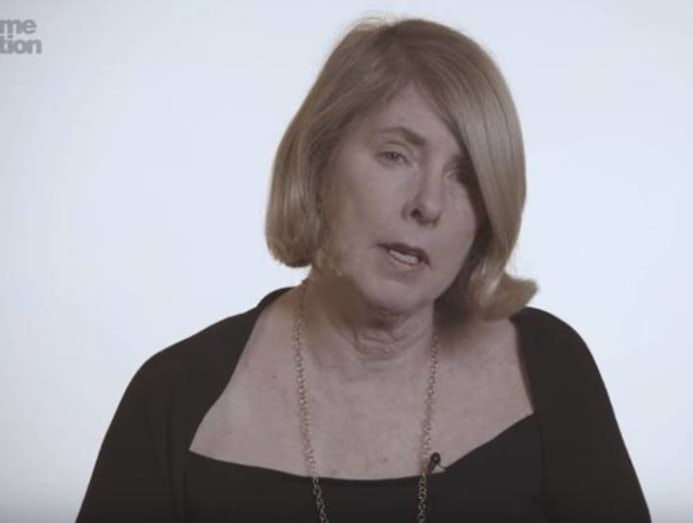Commentary: Living with bipolar disorder, trudging through life's highs and lows
SINGAPORE: World Bipolar Mean solar day falls on Mar thirty each year – the altogether of Vincent Van Gogh.
A Dutch painter in the 1800s and one of the virtually famous and influential figures in the history of Western art, Van Gogh suffered from several mental breakdowns in his life.
He often neglected his physical health.
His friendship with a close friend and fellow painter, Paul Gauguin ended after a purported mental episode in which Van Gogh severed part of his ain left ear and offered it to a prostitute.
As a result of his mental breakdowns, he spent extended periods of fourth dimension in several psychiatric hospitals in the last few years of his life. After his last discharge, he moved to a place virtually Paris.
Only his depression persisted and on Jul 27, 1890, Van Gogh shot himself in the chest with a revolver. He died from his injuries ii days later.
Although it is difficult to say with certainty, Van Gogh may have well suffered from bipolar disorder. He had episodes of extreme elevated moods and episodes of severe depression.
It is not an uncommon illness. In a Singapore Mental Health Report conducted in 2010, we plant that 1.2 per cent of Singaporeans suffered from this condition in their lifetime.

INVINCIBLE AND POWERFUL, THEN DEPRESSIVE AND WITHDRAWN
Bipolar disorder is a very complex illness. Like many mental disorders, there are no obvious external signs. Rather, a person is susceptible to episodes of extreme moods.
They could have periods of extreme euphoria. During these episodes, they may experience invincible and powerful. They may feel rich or have the belief that they have special powers.
Sufferers have grandiose ideas or may perform irrational acts such as starting upwardly several companies or buying 10 bedframes to requite away.
During this state of farthermost euphoria, they may likewise experience other symptoms including feeling similar they accept unlimited energy, their mind racing from thought to idea, or feel that they don't demand slumber. In milder cases, they may have spells of extreme inventiveness or productivity.
Then the pendulum swings, giving fashion to depressive episodes. Those who suffer from bipolar disorder would be thrown into extremely depression moods. Many become socially withdrawn and in severe cases, feel keenly that life is non worth living.

Studies take shown that even betwixt episodes, those who suffer from the illness have a greater caste of mood swings compared to the general population. Understandably, this paints a rather grim prognosis for anyone with the illness.
Stigma, dealing with the day-to-day challenges of a chronic illness, caregiver brunt, its effects on the diverse facets of a person's life (including career and family), all go far difficult to live with the illness.
LIVING WITH THE Affliction, FEELING LIFE More than Deeply
However, while it is a complex illness, those who suffer from it should non feel like they take to go through it lonely in the same way Van Gogh did.
Indeed, World Bipolar Day is not meant to be a mean solar day of grimness and negativity only a celebration of uniqueness and strength.
Writer and psychologist Kay Redfield Jamison wrote in her autobiography An Unquiet Mind about her struggles living with the illness and how difficult it was to take that she needed medication. However, she concluded with a rhetorical question. If given a pick, would she still choose to have the illness?
She said that she would not if she had non received handling. Simply with medication, her answer was different. She said the illness had enabled her to feel things more deeply, to feel both life and decease intimately, and to experience loyalty and care.

Although her autobiography was written in the 1980s, much of this all the same holds true today. There are more medication available to treat bipolar disorder today than in the 1980s. While they do not offering a cure, the medication help stabilise astringent mood episodes.
OVERCOME THE STIGMA OF MEDICATION
A common fallacy is that in one case the mood episodes take been treated, medicines are no longer required.
However, information technology is recommended that such medication or mood stabilisers be taken on a regular basis. Doing so has been shown to help those who endure from bipolar disorder manage mood swings in between episodes.
Many see medication as a reminder of their disease and a crutch. Some even meet it as causing harm.
Indeed, many may experience similar they need to cease their medication, in order to prove they have recovered and tin can move on with life. It may be encouraged by friends and family.
At that place is also the fear that employers would discriminate against them if they learn well-nigh their illness and that information technology would return them uninsurable past healthcare insurance providers.
Yet, the goal of treatment is to enable a person to alive a normal and full life, free from the astringent mood episodes and mood swings. In that location is no reason why a person living with bipolar disorder should not be able to complete schoolhouse, find a job, advance in their career and detect love.

A Celebration OF THE HUMAN SPIRIT
Today, across medication, there are resources and back up groups available to aid the person on their journeying.
Specific therapies have been shown to assist a person remain stable and well. Support groups and online information are available to help both the sufferer and caregivers learn to cope with such an affliction.
Kay Redfield Jamison eventually became a professor of psychiatry at the John Hopkins University School of Medicine.
Many famous and successful people similarly struggled with and overcame bipolar disorder to accomplish success in their fields.
Among them count Winston Churchill, the British prime minister during World War II, Carrie Fisher who starred every bit Princess Leia in Star Wars and famed singers like Demi Lovato and Sinead O'Connor.
Then let's celebrate World Bipolar Day. It'due south a celebration of how far we accept come in the management of this affliction.
It's a celebration of every struggle that those who endure the illness had to face and overcome.
It'due south a celebration of those who roughshod down and picked themselves up again and ultimately, a celebration of the human being spirit.
Dr Mok Yee Ming is senior consultant and master of department of mood and anxiety at the Institute of Mental Health (IMH).
READ: Channel NewsAsia's commentary serial with IMH on mental health which includes:
A commentary on the stressful school transitions that many parents and students struggle with.
A commentary on the stress, loneliness and sorrow some seniors experience during the festive Chinese New Twelvemonth season.
A commentary on the prevalence of depression in Korean popular stars.
A commentary on the dark underbelly of youth binge-drinking.
Source: https://cnalifestyle.channelnewsasia.com/commentary/bipolar-disorder-day-complex-mental-health-illness-215131
Post a Comment for "Commentary: Living with bipolar disorder, trudging through life's highs and lows"